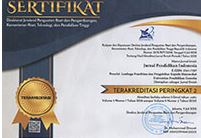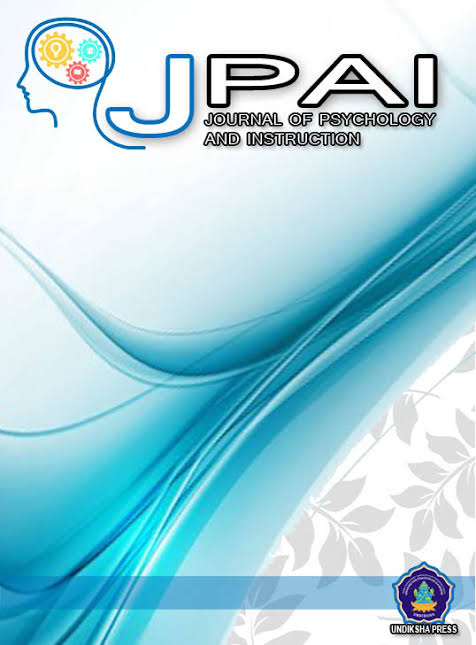Memerdekakan Belajar Mahasiswa Melalui Kemampuan Berpikir Kreatif Berbasis Pendekatan Heutagogy
DOI:
https://doi.org/10.23887/jpai.v8i3.83589Keywords:
Merdeka Belajar, Mahasiswa, Berpikir Kreatif, Pendekatan HeutagogyAbstract
The Kampus Merdeka program presents challenges and opportunities for students to develop creativity, capacity, personality, and independence in seeking and discovering knowledge through real-world dynamics. This program allows students to engage more actively in a self-directed and flexible learning process tailored to their needs and interests. This study aims to describe how to liberate PGSD students' learning through creative thinking skills using a heutagogical approach. This approach emphasizes student-centered learning, where students are encouraged to take full responsibility for their own learning process. The research employed a descriptive quantitative approach with the subjects being fourth-semester PGSD students from class B at Universitas Muhammadiyah Kotabumi. Data was collected through questionnaires to measure creative thinking indicators such as curiosity, imagination, originality, the ability to ask questions, unique ideas, freedom of expression, and alternative solutions. The results showed that 14% of students demonstrated curiosity and imagination, 16% originality and the ability to ask questions, 13% unique ideas, 17% freedom of expression, and 10% alternative solutions. The conclusion of this study is that students tend to demonstrate freedom of expression as the primary indicator of creative thinking. The implications of this research highlight the need to apply a heutagogical approach in learning to further promote the development of students' creative thinking abilities.References
Arifin, N. F. (2023). Pendekatan Heutagogi Untuk Mewujudkan Merdeka Belajar Pada Blended Learning Media Pembelajaran PAI di IAI Hasanuddin Pare. 2, 147–160.
Blaschke, L. M. (2021). The dynamic mix of heutagogy and technology: Preparing learners for lifelong learning. British Journal of Educational Technology, 52(4), 1629–1645. https://doi.org/10.1111/bjet.13105
Bykasova, L., Kamenskaya, E., Krevsoun, M., & Podbereznyj, V. (2021). Heutagogy as a concept of online education in higher school. 258, 07073.
Chamo, N., Biberman-Shalev, L., & Broza, O. (2023). ‘Nice to Meet You Again’: When Heutagogy Met Blended Learning in Teacher Education, Post-Pandemic Era. Education Sciences, 13(6), 536. https://doi.org/10.3390/educsci13060536
Dwijananti, P., & Yulianti, D. (2010). Pengembangan kemampuan berpikir kritis mahasiswa melalui pembelajaran problem based instruction pada mata kuliah fisika lingkungan. Jurnal Pendidikan Fisika Indonesia, 6(2).
Faudziah, W. S., & Budiman, I. A. (2023). Efektivitas Penggunaan Model Problem Based Learning (PBL) terhadap Kemampuan Berpikir Kritis Matematis Siswa SD. Papanda Journal of Mathematics and Science Research, 2(1), 22–29. https://doi.org/10.56916/pjmsr.v2i1.272
Kalsoom, S., Kalsoom, N., & Mallick, R. J. (2020). From banking model to critical pedagogy: Challenges and constraints in the university classrooms. https://doi.org/10.32350/uer.31.02
Kemdikbud. (2022). Kementerian Pendidikan dan Kebudayaan. Diambil Pada, 24.
Kim, J. (2022). The Interconnectivity of Heutagogy and Education 4.0 in Higher Online Education. Canadian Journal of Learning and Technology, 48(4). https://doi.org/10.21432/cjlt28257
Muhsin, H. (2021). Kampus Merdeka Di Era New Normal. Masa Depan Kampus Merdeka & Merdeka Belajar: Sebuah Bunga Rampai Dosen, 143.
Nurmahudina, S. (2019). Pengaruh Penggunaan Lembar Kerja Peserta Didik (LKPD) Berbasis Exclusive pada Pembelajaran Alat Optik Terhadap Kemampuan Berpikir Kreatif. https://doi.org/10.32939/tarbawi.v15i02.347
Suardipa, I. P. (2018). Guru Sebagai Agen Inovator Berbasis Higher Order Thinking Skills. Purwadita: Jurnal Agama Dan Budaya, 2(2), 73–83.
Supardi, U. (2015). Peran berpikir kreatif dalam proses pembelajaran matematika. Formatif: Jurnal Ilmiah Pendidikan MIPA, 2(3).
Syarifah, T. J., Usodo, B., & Riyadi, R. (2018). Higher order thingking (HOT) problems to develop critical thinking ability and student self efficacy in learning mathematics primary schools. 1(1).










